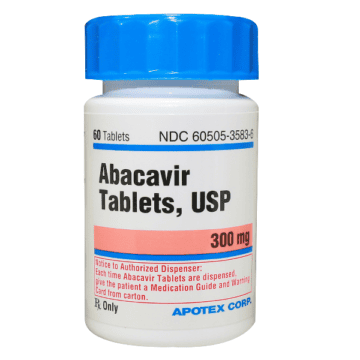This is an automatically translated article.
Zolmitriptan belongs to the group of triptan drugs, whose primary action is to treat persistent migraine headaches and to alleviate other associated symptoms (eg, nausea, vomiting, sensitivity to sound, light). So how should Zolmitriptan be used to be effective?1. What are the effects of Zolmitriptan?
Zolmitriptan is commonly used to treat migraine headaches. Zolmitriptan helps relieve headaches and other migraine symptoms (including nausea, vomiting, sensitivity to light and sound). Zolmitriptan affects a natural hormone called serotonin, which causes narrowing of blood vessels in the brain, affecting certain nerves in the brain to reduce the feeling of headaches.
Timely migraine treatment will help you adjust to a normal life and reduce the need for other headache medications. However, Zolmitriptan does not help prevent future migraines or help you reduce the frequency of migraine attacks.
2. Dosage and how to take Zolmitriptan
Zolmitriptan is usually taken by mouth with or without food as directed by your doctor at the first sign of a headache. Dosage is based on your medical condition, response to treatment, and medications you're taking. Tell your doctor about any medications you are taking (including over-the-counter (OTC), prescription and herbal products);If headache symptoms do not improve, do not take an additional dose of Zolmitriptan before talking to your doctor. If the pain symptoms are only partially relieved or if the headache recurs, you can take another dose at least 2 hours after taking the first dose. Do not take more than 10 milligrams in 1 day. Some other patients may be instructed not to take more than 5 milligrams in 24 hours. Ask for and follow your doctor's instructions carefully.
If you are at high risk for heart problems, your doctor may perform a heart test before telling you to take Zolmitriptan . They may also ask you to take the first dose of this medicine in the office to monitor for serious side effects (such as chest pain). If you have been using another headache medicine for more than 10 days per month, Zolmitriptan may make your headache worse (overuse headache). Do not take this medication by yourself more often or for longer than prescribed. If you need to take your medicine more often, or if it doesn't work as well, or if your headache gets worse...tell your doctor.

Thuốc Zolmitriptan được sử dụng theo đúng chỉ dẫn của bác sĩ
3. Unwanted effects when taking drugs
Like many other pain relievers, Zolmitriptan can also cause some side effects such as tingling, numbness, nausea, increased blood pressure, dry mouth, weakness, drowsiness or dizziness. . Tell your doctor if you notice any of these serious warning symptoms: blue fingers, toes, fingernails, and cold hands and feet.Zolmitriptan can often cause tightness and pain in the chest, jaw, and neck area, but is usually not too serious. However, these side effects may sound like symptoms of a heart attack, get medical help right away if you notice signs such as: fast heartbeat, chest pain, jaw pain, left arm pain, difficulty breathing, unusual sweating, stomach pain, severe abdominal pain, bloody diarrhea, fainting, signs of stroke (such as weakness on one side of the body, difficulty speaking, sudden vision changes sudden, confused).
This medicine can increase serotonin and rarely cause a very serious condition called serotonin syndrome. The risk is increased if you are also taking other medicines that increase serotonin, so tell your doctor or pharmacist of all the medicines you are taking. Get medical help right away if you have any of these symptoms: fast heartbeat, hallucinations, loss of coordination, severe dizziness, nausea, vomiting, severe diarrhea, muscle twitching, unexplained fever, agitation, unusual restlessness.
Allergic reactions to Zolmitriptan are also rare. However, if you notice any signs of a serious allergic reaction such as: itching and swelling of the face, tongue, throat, severe dizziness, rash, difficulty breathing, etc., seek medical help as soon as possible. good.
4. Be careful when using Zolmitriptan
Before taking Zolmitriptan medicine, keep the following in mind:
If you are allergic to Zolmitriptan or have any other condition, tell your doctor right away. Share with your doctor your medical history, especially of: circulation problems (eg, in the arms, hands, legs, or stomach), certain types of headaches (hemiplegic migraines) , common migraine), heart problems (such as heart attacks, chest pain, irregular heartbeat), liver disease, epilepsy, stroke, or "mini-stroke" (ischemic attack). transient local). Certain health conditions can increase your risk of heart disease. Tell your doctor if you have any of these conditions, including: high cholesterol, high blood pressure, diabetes, family history of heart disease, obesity, smoking, postmenopausal ( women), over 40 years old (men). Zolmitriptan medicine can cause dizziness, drowsiness or blurred vision, so patients should not use it with stimulants, alcoholic beverages. Do not drive, operate machinery, or do anything that requires alertness or concentration while the medicine is working. The risk of heart disease, liver disease, and high blood pressure increases with age. Older adults are more sensitive to the side effects of Zolmitriptan , especially high blood pressure and heart problems. For pregnant women, the headache medicine Zolmitriptan should be used only when absolutely necessary. It is not known whether Zolmitriptan passes into breast milk and causes unwanted effects on a nursing infant, so consult your doctor carefully.

Zolmitriptan cần được dùng theo chỉ định của bác sĩ sau khi đã thăm khám
5. Zolmitriptan drug interactions
MAO inhibitors (such as Moclobemide, Procarbazine, Phenelzine, Safinamide, Rasagiline, Selegiline, Linezolid, Isocarboxazid, Tranylcypromine...) if used together with headache medicine Zolmitriptan can cause serious drug interactions, even cause dead. MAO inhibitors should not be taken 2 weeks before and after treatment with Zolmitriptan.
The risk of serotonin syndrome is increased if you are also taking other medications that increase serotonin. Examples include Ecstasy (MDMA), St. John's wort, certain antidepressants (including SSRIs such as Fluoxetine, Paroxetine, SNRIs such as Duloxetine, Venlafaxine). Your risk of serotonin syndrome may be higher when you start or increase your dose of these medications.
6. Some notes on Zolmitriptan drugs
Certain foods, beverages or food additives (e.g. red wine, cheese, chocolate, MSG) as well as lifestyles such as irregular sleeping habits or stress can cause migraine headache. Avoiding these “triggers” can help ease your migraine attacks.
Overdose: If you overdose on Zolmitriptan and you see symptoms such as fainting or difficulty breathing, take the patient to the emergency room immediately.
Storage: Store Zolmitriptan at room temperature, away from light and moisture. Keep medication out of reach of small children and range of pets.
Above is important information about Zolmitriptan medicine. Carefully reading the instructions before use always brings positive treatment effects.
Please dial HOTLINE for more information or register for an appointment HERE. Download MyVinmec app to make appointments faster and to manage your bookings easily.
Reference source: webmd












